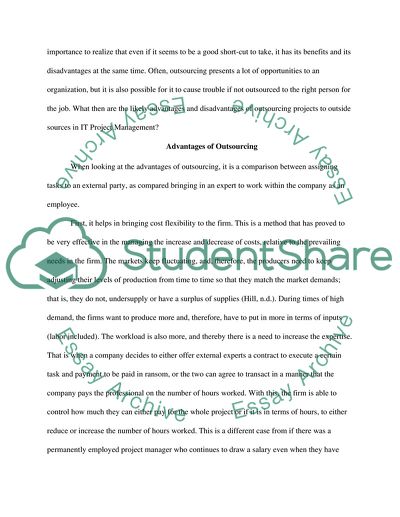Cite this document
(“Advantages and disadvantages of outsourcing in IT Project Management Research Paper”, n.d.)
Retrieved from https://studentshare.org/information-technology/1702430-advantages-and-disadvantages-of-outsourcing-in-it-project-management
Retrieved from https://studentshare.org/information-technology/1702430-advantages-and-disadvantages-of-outsourcing-in-it-project-management
(Advantages and Disadvantages of Outsourcing in IT Project Management Research Paper)
https://studentshare.org/information-technology/1702430-advantages-and-disadvantages-of-outsourcing-in-it-project-management.
https://studentshare.org/information-technology/1702430-advantages-and-disadvantages-of-outsourcing-in-it-project-management.
“Advantages and Disadvantages of Outsourcing in IT Project Management Research Paper”, n.d. https://studentshare.org/information-technology/1702430-advantages-and-disadvantages-of-outsourcing-in-it-project-management.


